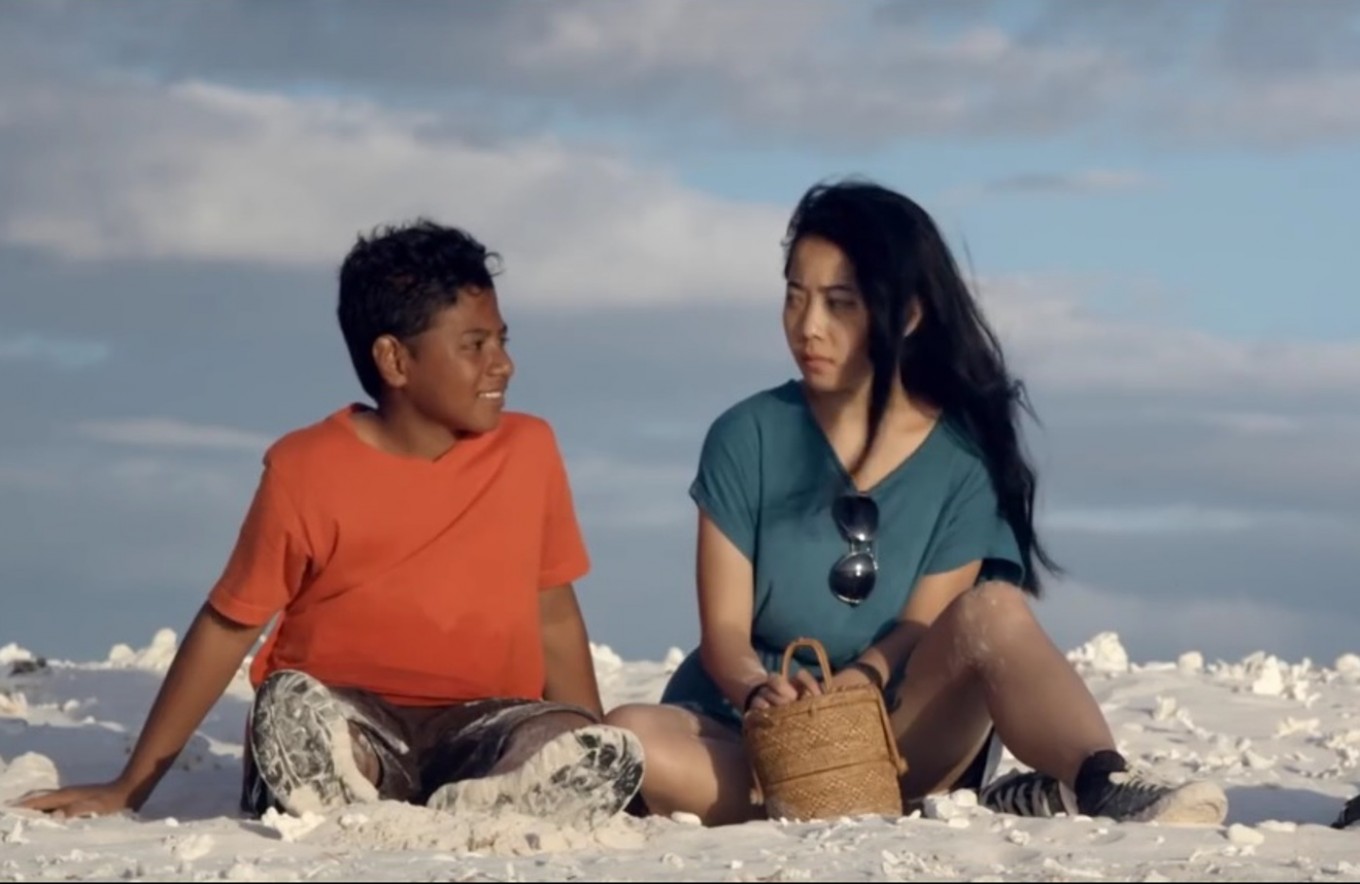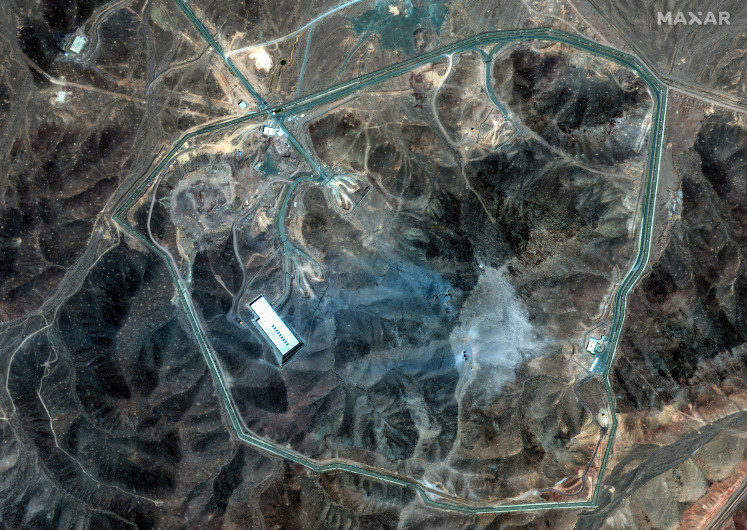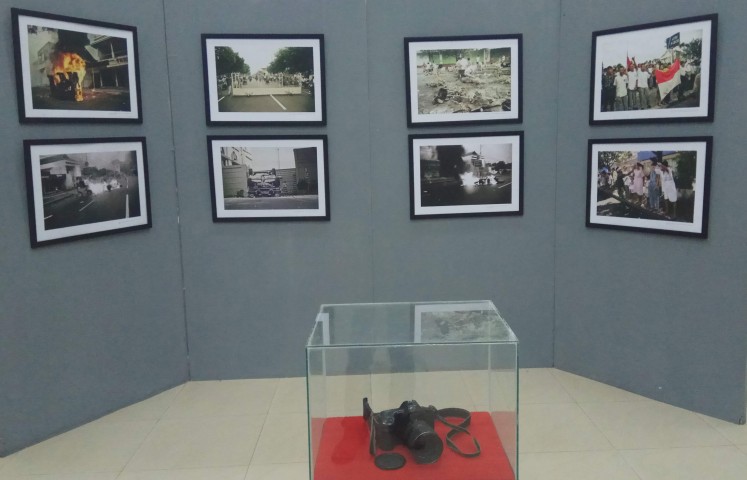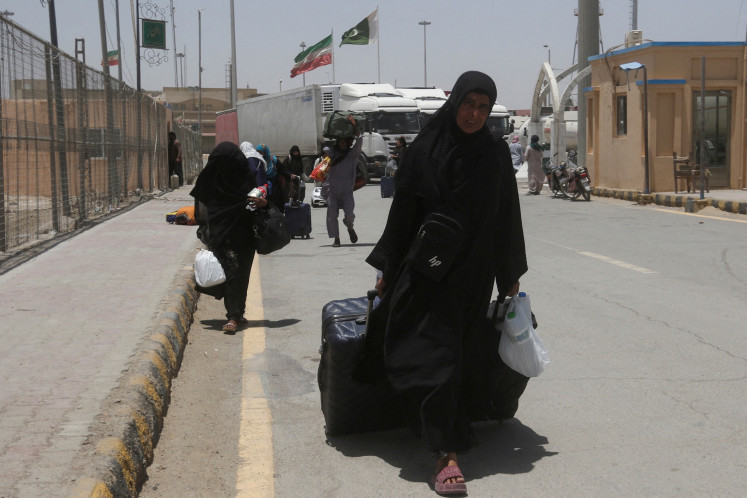Popular Reads
Top Results
Can't find what you're looking for?
View all search resultsPopular Reads
Top Results
Can't find what you're looking for?
View all search resultsSalawaku: Road trip with a twist
A heartbreak pilgrimage story tinged with gender and inequality issues
Change text size
Gift Premium Articles
to Anyone
 Elko Kastanya (left) and Karina Salim (right) in one of the scenes of (Official Film Salawaku YouTube channel/File)
Elko Kastanya (left) and Karina Salim (right) in one of the scenes of (Official Film Salawaku YouTube channel/File)
T
ypical heartbreak road trip stories usually present the tale of a protagonist who decides to go somewhere far in order to rethink their life after a difficult breakup, with the character discovering some novel insights in the end.
A chance to unravel strangers’ mysteries and secrets within just one road trip, however, is a rare thing and this plot is what Salawaku strives to offer. Set in the Western part of Seram Island in Maluku, the film Salawaku opens with a fighting scene between elementary school student Salawaku (Elko Kastanya) and his friends in a schoolyard after his friends tell him that he is just like his sister. Then, all of sudden, it cuts to a scene showing Salawaku’s missing sister Binaiya (Raihaanun) screaming and weeping on a boat in the middle of the ocean. What is going on?
The audience is left wondering while the story moves on.
A traveler, Saras (Karina Salim), is stranded on a beach and the young Salawaku brings her food before taking her to her resort. The resort is located near the village where Salawaku lives. The plot, however, still has not explained why Saras was stranded there.
They cross the water using a small boat to reach her resort. While they are on their way, however, Saras receives a text message from somebody, saying “I love you, but I am not ready.” Those familiar with heartbreak pilgrimage stories can guess that the message comes from a lover.
The text message seems to upset Saras and suddenly she does not want to return to her resort and wants to be left alone.
“Let me accompany you in finding your sister,” she says to Salawaku, who appears to be confused at first, but eventually welcomes her goodwill.
The journey continues with Kawanua (Joshua “JFlow” Matulessy), Salawaku’s adopted older brother, accompanying them on a ride on an open cabin truck to go to a place where Binaiya now lives. When they decide to stop at a beach, Kawanua and Saras talk to each other, seemingly getting along very well. Like in any heartbreak-induced road trip story, Saras resembles other heartbroken characters that have been lucky enough to find another potential partner during their journey.
The story, however, is not that simple. The audience still knows neither what happened to Saras and her boyfriend that leads her to take the journey nor the cause of Binaiya’s disappearance.
Then, in a sudden twist after a very slow buildup, their truck unexpectedly takes a wrong turn — Salawaku is aware that Kawanua intentionally takes them the wrong way. The boy becomes very angry and runs away from both Saras and Salawaku.
While the two adults chase him around, a secret unravels: Kawanua finally explains why he has been evading Binaiya. This makes Saras angry and she insists that they find the woman. The three of them (Salawaku, Binaiya and Kawanua) finally reunite, and in a tender moment of togetherness, a few minutes before the film ends, Saras finally reveals a painful story about herself.
The story is interesting as it also brings about the cultural collision between Saras, a city girl, and Salawaku, a village boy. Saras and her penchant for taking photos and videos, which she posts on her social media accounts, amazes the boy. She also carries several urban catchphrases like “keren banget!” (very cool), to the confusion of the young boy, who peppers their conversations with his own local language and dialect, just like Binaiya and Kawanua.
Instead of being comical or stereotypical, however, director Pritagita Arianegara has the deeper intention to bring forth the cultural differences between the city girl and the native Maluku residents. This film tries to deal with gender and socioeconomic inequalities, with a special emphasis on gender. The idea is: despite the linguistic, territorial as well as cultural divides that separate Binaiya and Saras, these contrasting characters share similar gender-based injustices.









